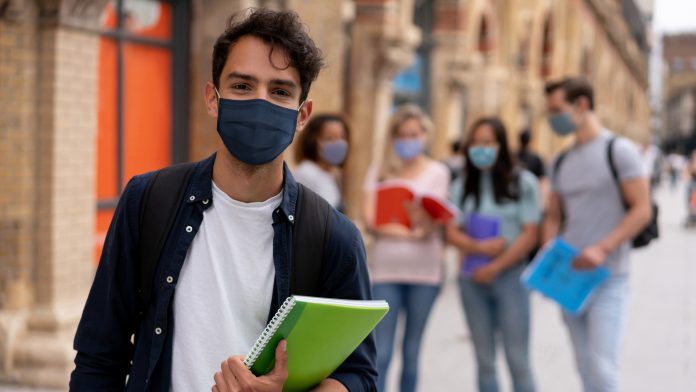
Offering COVID-19 vaccines on campus and introducing phased returns in the autumn is key to making universities safer, public health experts have said.
In an opinion piece in The BMJ, Simon Williams from Swansea University, UK, and Gavin Yamey, from Duke Global Health Institute in North Carolina, USA, have listed five key steps that universities could take to ensure that students are better protected.
Williams and Yamey attributed COVID-19 outbreaks leading to lockdowns in student accommodation to a lack of preparation from universities, saying that action needs to be taken to prevent these incidents reoccurring in autumn.
The experts also drew attention to the dangers presented by the Delta variant of the virus, which is estimated to be twice as transmissible as the original coronavirus strain.
Encouraging vaccinations
The authors recommend that universities consider encouraging the uptake of COVID-19 vaccines by offering on-site vaccination. They note that the current government plans to offer incentive schemes and insist on ‘vaccine passports’ to gain access to nightclubs may also boost uptake.
Delayed or phased returns
Secondly, universities could consider delaying or phasing in their autumn re-openings to avoid a mass migration of all students within a few weeks.
Ventilation
Thirdly, universities and governments could invest in ensuring there is adequate ventilation across campuses, including in classrooms and accommodation. This would help reduce the transmissibility of COVID-19 and other respiratory diseases such as influenza. Holding outdoor classes – weather permitting – could also help.
Test and trace
The experts also said another useful step would be to have effective contact tracing in place combined with on-campus testing and isolation, backed by additional resources to ensure adequate support for self-isolation.
Masks
Finally, the authors recommend insisting on the use of facemasks in settings where social distancing is not possible, such as lectures within classrooms.
The researchers concluded: “With universities on both sides of the Atlantic about to reopen, institutions of higher education are once again confronting the challenges posed by SARS-CoV-2 in their planning for safe operations during the approaching academic year.
“It remains critically important to protect students from COVID-19. While it’s true that COVID-19 rarely kills young adults, they certainly can become ill and can also develop long-term symptoms.
“Infected students can infect older, vulnerable adults on campus, including teachers and university maintenance and service staff. There is also evidence that campus outbreaks can drive infection in the communities around the university.”
























